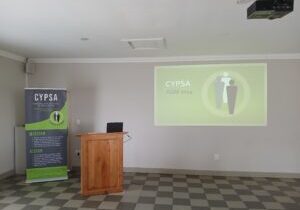The fact that we have human rights does not mean that we have the right to do whatever we want. Lobbyists are fighting for their right to use dagga, almost equating it with their right to the freedom of speech and thought. How can any impartial individual confuse hard won, primary human rights, such as the freedom of speech and the presumption of innocence, with the freedom to smoke a drug?
These individuals claim that their freedom is threatened by the legal restrictions against dagga, and will stubbornly hold to this last, irrational line of defence, when the holes in all other arguments have been exposed. “We have a right to put whatever we want to into our bodies!” No, unfortunately we don’t. Society has an inherent right to ward off crimes against itself, and it does so by implementing laws against threats like dagga. In such cases the desires of an individual or minority can be superseded by the need to preserve the safety of the majority.
Should rape be legalized because some like to do it? Is it an infringement of the rapist’s human rights to have laws against rape in place? (And no, we are not equating rape and murder with smoking dagga, which is the usual response we receive whenever this statement is made). The principle is the same. Dagga users can cause terrible distress to others. They may wreck the lives of their friends and families. The user is not the only one affected and those around him become unwilling victims of the drug. What about the rights of the user’s family members and friends?
Dagga disrupts and even destroys families, marriages and other relationships. Broken relationships erode society. What about the rights of husbands, wives, their children and society as a whole? No two people are alike and neither are their circumstances. While a few individuals claim to have smoked dagga with little or no negative effect to themselves, this is most definitely not always the case. Now for their own convenience and pleasure, this minority would like to see dagga legalized, and are willing to condemn unknown numbers of others to possible disaster. What about the rights of their fellow South Africans?
Parents fear that their children will fall victim to dagga and do not wish this for their offspring. Children will be at far greater risk should this drug be legalized. What about the rights of parents to protect their children, and what about the rights of our country’s youth? Allowing people the freedom to do absolutely anything they want, including smoking dagga, is anarchy and lawlessness and not freedom. This utopian argument for the legalization of dagga may seem valid intellectually or theoretically, yet its implementation would have catastrophic results. Laws against dagga are in place to prevent the damage an individual may do to himself and because of the risk that in damaging himself, he may injure others. This is one of the many roles that the law plays in any society.
Many then argue that individual freedom is threatened if the state is an enforcer of moral behaviour in the form of laws prohibiting past-times such as smoking dagga. This would be true in a society of strong independent morality. Unfortunately, our society has shown an increasing trend towards the throwing off of self-restraint and morals. The most important thing to remember here, is that there is no overwhelming public demand in favour of a major relaxation of current anti-dagga legislation. This is simply the desire of a handful of organizations and a minority group of individuals. They may have some support, but this support comes predominantly from members of society who make use of dagga themselves. Their views are by no means representative of the views of South African society as a whole.
We must be extremely wary of the growing trend where the desires of one individual in a crowd are given preference over the wishes of the majority in the name of that individual’s human rights, and it should most definitely not be allowed to happen in this case.



